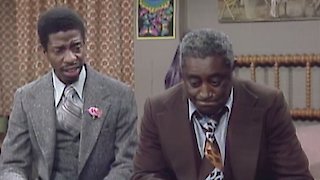
United has been through turbulence of its own since former manager Alex Ferguson retired in 2013. People have to stick with that along the way.” For Chelsea it has to be a longer picture than that to get us a bit more of a process. “If you want to go in a certain direction and you don’t get any joy for a while, people react to that. “It’s hard in the modern world because everything’s very reactionary,” interim manager Frank Lampard said Wednesday. Mauricio Pochettino is expected to be appointed its next full-time coach. Two managers have also departed in Thomas Tuchel and Graham Potter. A shambolic season has left the 2021 European champion in the bottom half of the table despite spending around $630 million on new signings. It certainly hasn’t worked out for Chelsea in its first year under new owners Todd Boehly and Clearlake Capital.


And it was in that role, as Florida Evans in Good Times – a show that never quite lived up to the promise that she and some of the other cast members had believed it could fulfill – that she would always be remembered.Mbappe wins record 5th French golden boot, Rennes earns Europa League spot, Auxerre relegated Rolle continued to work steadily in film, television and onstage, and in 1979 won an Emmy for her role in Summer of My German Soldier. She died in 1998, credited with being one of the premier Black actresses who did the most to smash the color line on TV. Good Times, which had started so promisingly as a show devoted to an actual, if comedic, depiction of Black life, had become just another goofy sitcom in an era dominated by them. In a desperate bid to shore up the show's popularity, the producers convinced Rolle to come back for a final season in 1978-79, but the damage had already been done. The show's ratings were already sliding by that point, and even the addition of Janet Jackson to the cast for the fifth season - as a traumatized young girl taken in by Willona - couldn’t save them. A year later, in March 1977, Rolle, too, left the show that had been created for her the writers handled this departure by having her meet and marry a man named Carl Dixon (Moses Gunn) and move to Arizona. The writers handled it by having James Evans die in an automobile accident while visiting the south, leaving Florida a widow.

… I resent the imagery that says to Black kids that you can make it by standing on the corner saying 'Dyn-o-mite!"įierce disagreements among actors and producers over the difference between the show's initial socially conscious premise and the new direction it was taking led to Amos being fired from the show after the third season. As Rolle put it in a 1975 interview with Ebony: "He's 18 and he doesn't work. The show initially used all of these characters to create a distinct atmosphere of life in a Chicago housing project and to tackle social issues.Īmos and Rolle, who both had activist inclinations of their own, were displeased by the turn the show was taking. There were also several recurring supporting characters: a divorcee named Willona Woods who was Florida's best friend, the annoying building super Nathan Bookman, a local alcoholic named Ned the Wino, a neighborhood pimp, the local alderman and others. And there were the usual conflicts between the parents and kids over the topics of the day – whether the kids had jobs, whom they were dating and Michael's social activism. James worked several jobs at the same time, struggling to keep the family out of poverty, while Florida worked to keep the family together.

The initial structure of the show was familiar to audiences and in particular those who were familiar with All in the Family and Maude. Set in a poor neighborhood in Chicago, the show tells the story of Florida and James Evans (John Amos) and their three children: J.J., Thelma and Michael (played by Jimmie Walker, Bern Nadette Stanis and Ralph Carter, respectively). 8, 1974, it was the first American TV show to be a spin-off of a spin-off and the first to portray a Black family of the type that in its white incarnations had been dominating sitcoms since the '50s. Rolle's character was so popular that less than 18 months after the first episode of Maude, Rolle was given a spin-off of her own, Good Times.


 0 kommentar(er)
0 kommentar(er)
